This year’s winner of the Stephen Fry Public Engagement Project of the Year award was the MRC PPU in the School of Life Sciences for their work on improving the experiences of those living with Parkinson’s. The project team introduce the project below.
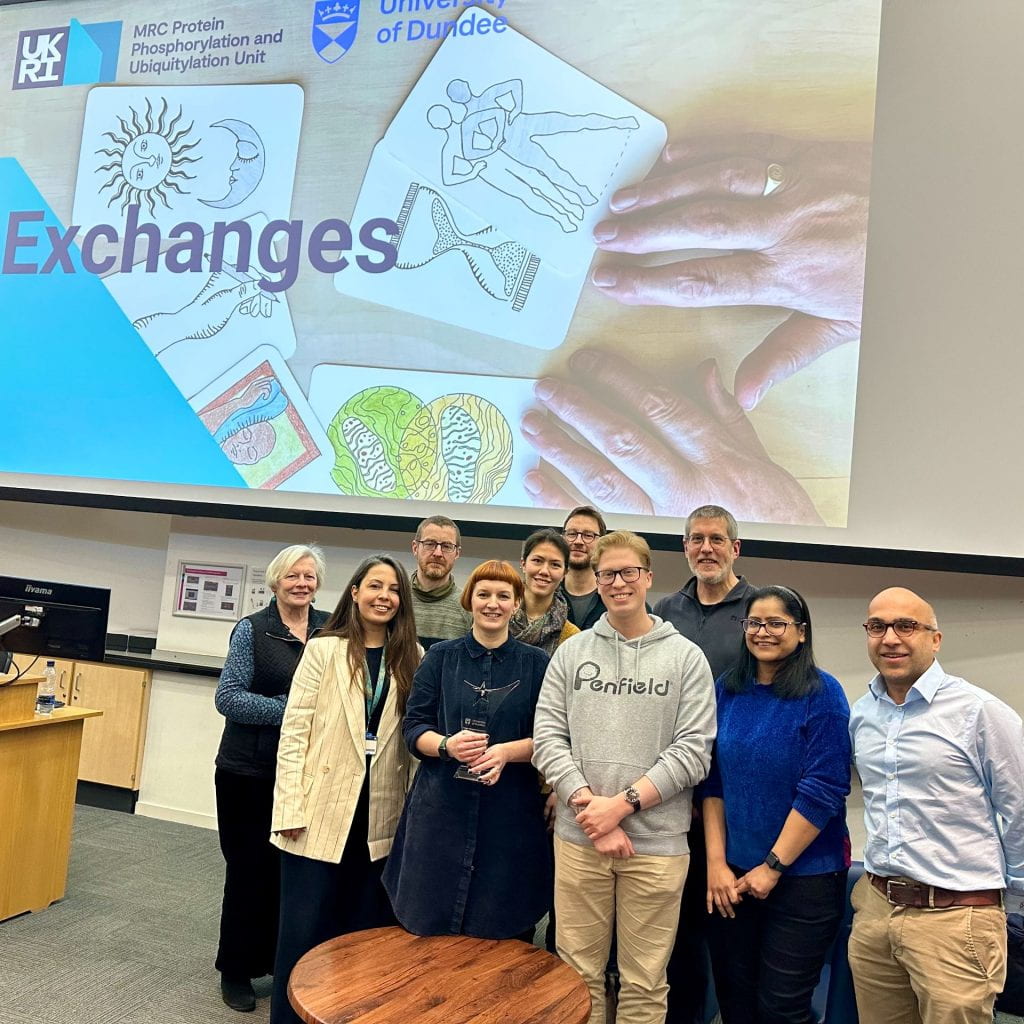
Interactions between people with Parkinson’s, carers and researchers are often limited to research talks or visits to laboratories. These interactions are hugely beneficial to all involved and improve the understanding of research developments, but the opportunity for deeper conversations – particularly around the complexities and ambiguities of the lived experience of Parkinson’s and of the research process itself – can be limited in these settings.
We identified a need from our previous “Misprints” project to develop a creative resource that inspires deep, meaningful exchanges between Parkinson’s researchers and people with lived experience of Parkinson’s to further increase patient involvement in our research.
MRC PPU researchers worked with external artist Daksha Patel to create art card drawings to represent our Parkinson’s research and the Parkinson’s symptoms observed by Prof Miratul Muqit in his Consultant Neurologist role.
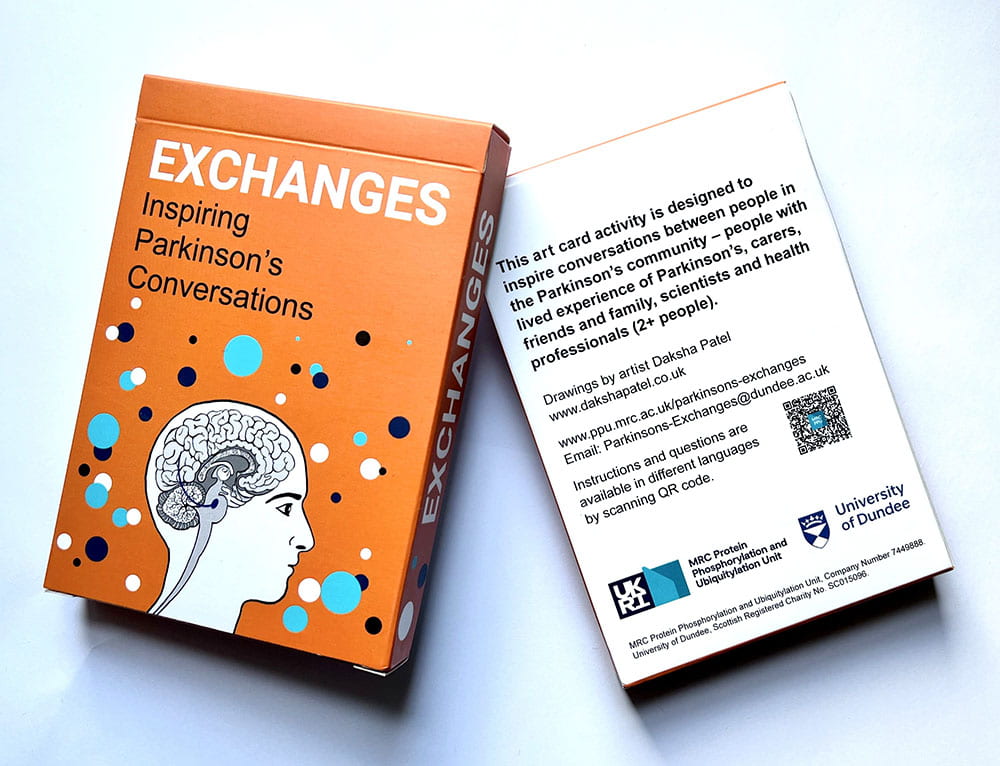
17 of our researchers and 9 local people with lived experience of Parkinson’s (inc. carers) reviewed the art card drawings and co-created our interpretive art card activity, ensuring our final resource meets the needs of the Parkinson’s community:
- Discussed how to better represent their research or lived experience through the drawings
- Decided black and white drawings were preferred over colour to support personal interpretation of the art cards
- Input what new art cards were needed to include all participants’ experiences of Parkinson’s
- Tested different ways to use the art cards with question prompts such as “What does Parkinson’s mean to you?” to support deeper conversations.
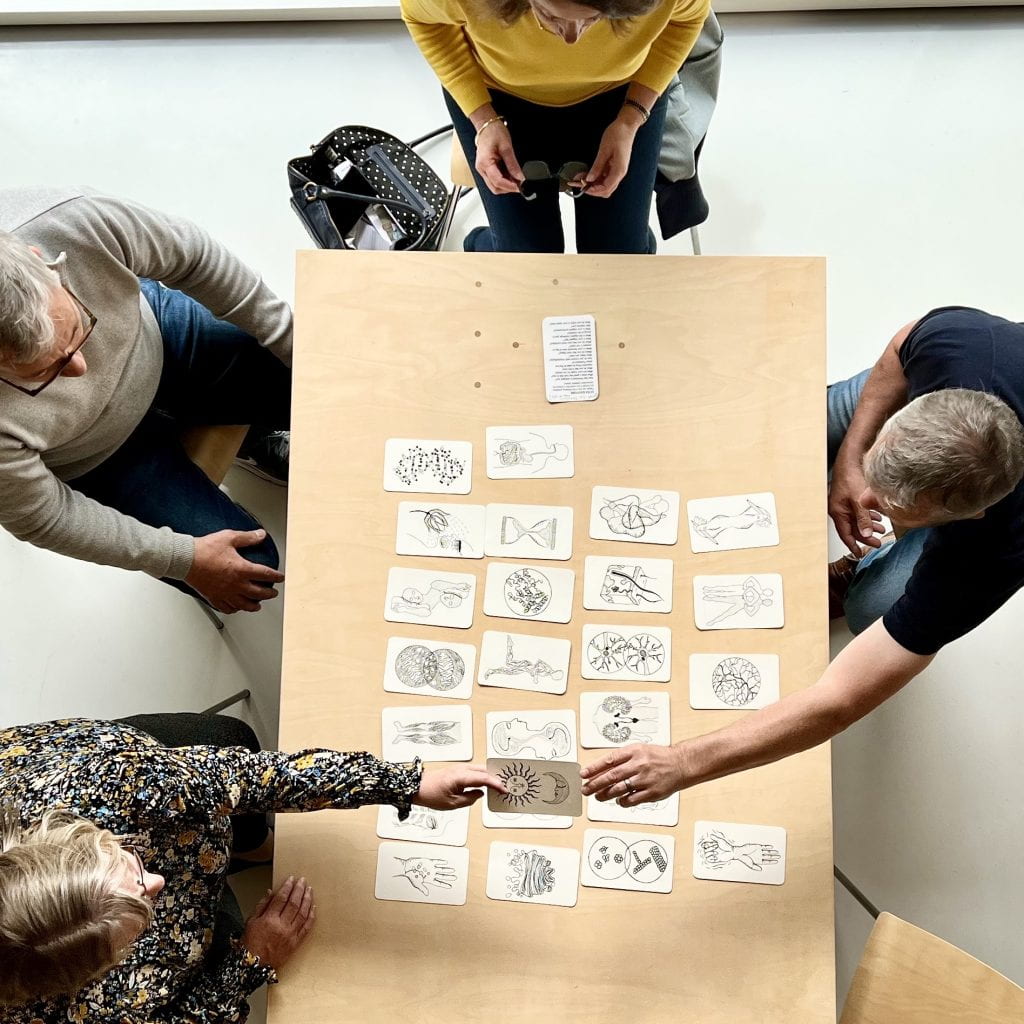
To ensure accessibility, we also:
- Tested the colours, sizes and thickness of the cards and box to ensure they meet the needs of people with Parkinson’s
- Set up a webpage (linked from a QR code on the card box) to enable the translation of the questions & instructions cards into any language.
This co-creation has enabled us to produce a final resource that meets the needs of all involved.
We invited those with lived experience of Parkinson’s and our researchers to use ‘Exchanges’ together in pairs (Sept 2022) and captured the resulting, powerful exchanges on film.
Key outcomes
- Initial experiences of the art card resource being used between a person with lived experience of Parkinson’s and a researcher generated striking levels of engagement, breaking down barriers and prompting profound conversations about Parkinson’s and Parkinson’s research.
- We discovered that the resource has an even greater/wider impact than originally anticipated – it is successful at prompting discussions about the emotional and physical challenges of Parkinson’s amongst people with lived experience of Parkinson’s (people affected by Parkinson’s and carers) without the presence of researchers too.
- Unexpectedly, the resource also supports deep conversations about Parkinson’s in a group setting as well as in pairs, with participants advocating future use at conferences, in support groups, and in clinical settings.
The project was accepted for poster presentation at the World Parkinson’s Congress 2023 in Barcelona.
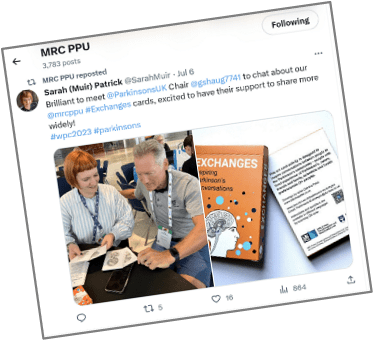
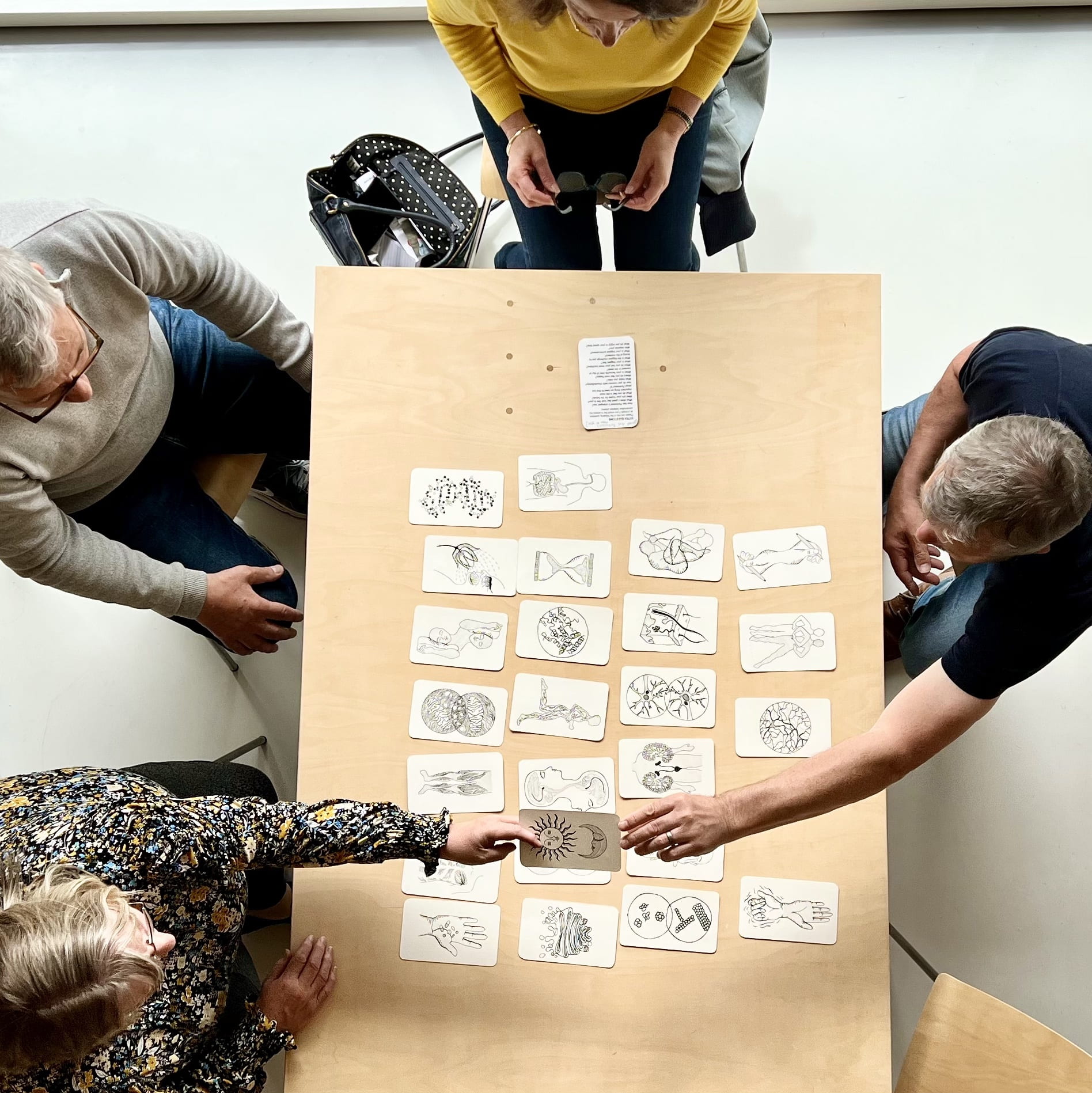
My husband was diagnosed of Parkinson’s Disease a couple of years ago, he had severe fatigue, difficulty with mobility and sleeping. He was placed on Sinemet 3 times daily, which helped but only for a short while. So we decided to try alternative treatment and began on PD-5 protocol , It has made tremendous difference for my husband, he had improved walking balance, muscle strength and he is now very active. His Parkinson’s is totally under control, we got the treatment from binehealthcenter. com. This treatment is a breakthrough for PWP!